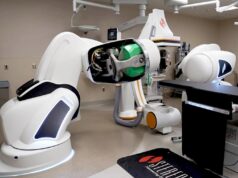There is a lack of a uniform approach or guidelines when dealing with the ethical, legal and privacy concerns that can arise in cardiogenetics. These concerns include “duty to warn” and “child protection” dilemmas and may occur in both clinical and research settings; write Michelle A Mullen and Robert M Gow (both from Ottawa, Canada). Mullen spoke on the subject at the 13th International Dead Sea Symposium on Innovations in Cardiac Arrhythmias and Device Therapy (IDSS; 6–9 March, Tel Aviv, Israel).
Cardiogenetics increasingly permits the identification of otherwise healthy individuals who may be at risk for sudden cardiac death (SCD) conditions. Monogenic and copy number variations of different genes have been identified as predisposing to potentially fatal arrhythmogenic conditions, eg. Long QT syndrome and arrhythmogenic right ventricular dysplasia (ARVD). In some cases, patients may experience syncope leading them to seek cardiology assessment. For others, unfortunately, the heralding event may be fatal. Effective prophylaxis (eg. β-blocker pharmacotherapy, implanted cardiac defibrillator (ICD)) is available to reduce tremendously the risk of sudden death, although for some individuals this can represent significant burden of treatment.
Identification of genes increasingly shapes clinical practice. However, genetics testing varies from more general medical testing in several important ways. Decisions surrounding most medical tests are concerned exclusively with the presenting patient: ethically, this reflects the patient’s autonomous and informed decision process (or a decision made only in the best interests of an incapable patient). In contrast, genetic tests are by definition about relatedness, and may have vital implications for others. Family history comprises an essential component of the cardiac work up and where a diagnosis of a SCD condition is made by clinical assessment or genetic testing identification, contact and offer of services to other relatives potentially at risk may constitute both medical and ethical obligations.
Much discussion has been devoted to potentially negative impacts for individuals who undergo genetic testing. Concerns have focused on stigmatisation such as discrimination from insurability and employment, although to date there is limited use of genetic testing for these purposes.
Exclusion from basic health insurance is particularly concerning while the potential, for example, to screen pilots for conditions predisposing to sudden death, would clearly pit the public interest against the rights of individuals freely to choose genetic testing. The identification of relatives potentially at risk raises further ethical, legal and privacy issues including threats to autonomous decision making and privacy.
The psychosocial impact of genetic testing on individuals, families and identifiable at-risk communities is widely studied for certain hereditary conditions, especially cancer susceptibility, although not in genetic arrhythmias. Some positive impacts of genetic testing may include a sense of control through knowledge, and opportunities for surveillance and prophylaxis. Test results can help individuals in life decisions around education, employment and reproduction. Negative impacts may include a sense of fatalism or helplessness, disruption of family and community relationships, guilt or anger, and stigmatisation.
There is a lack of a uniform approach or guidelines when dealing with the ethical, legal and privacy concerns that can arise in cardiogenetics.
These concerns include “duty to warn” and “child protection” dilemmas and may occur in both clinical and research settings.
Decisions to undertake/decline clinical and genetic testing, privacy, and risks to employability, insurability and psychosocial well-being have been described in various conditions, eg. cancer genetics; however, cardiogenetics for SCD is distinct from cancer genetics in several important ways:
- SCD may happen to children, youth and adults whereas genetic predisposition to cancer might only clinically affect children and youth in a remote future
- Effective prophylaxis (ß-blockers, ICD) is available to reduce greatly the risk of sudden death, although for some these represent burdensome interventions
- The consequences of undiagnosed SCD conditions can be dire: sudden death without heralding events
- There are potential “duty to warn” scenarios (eg. SCD condition in a pilot and public safety) and “child protection” scenarios (children at risk for SCD but not assessed because of parental refusal of testing).
Survey on ethical issues in genetic testing for sudden cardiac death
To begin to explore these ethical issues in SCD, we devised an empirical study to examime dilemmas encountered by healthcare providers of cardiogenetics services in Canada, which included responses from genetics counsellors, medical genetists, adult cardiologists, paediatric cardiologists, molecular geneticists, laboratory geneticists, genetics nurses and bioethicists. We have also piloted the study with affected families through a support and advocacy organisation (SADS Canada).
The survey consists of four fictional ethical scenarios, each involving genetic screening and SCD. Two scenarios describe a potential child protection issue—an 11 year old elite athlete cousin at risk for Long QT, diagnosed both in a clinical laboratory (scenario 1) and a research laboratory (scenario 2). Two scenarios describe a potential duty to warn/public protection issue—an adult sibling who has just become a commercial pilot and who may be at risk for SCD diagnosed in both in a clinical laboratory (scenario 3) and a research laboratory (scenario 4).
Each scenario is followed by five multiple-select, close-ended questions, anchored by a five-point Likert scale. Designed principally as a quantitative study, participants were invited to make comments about each of the questions and make general comments at the close of the survey, owing to the novel nature of the material.
Overall results indicate that healthcare providers struggle with both duty to warn and child protection scenarios in their cardiogenetics practice. An important finding is that while healthcare providers appear to be more concerned about a duty to warn (pilot at risk for SCD), patients and families are more concerned about child protection issues (child at risk for SCD).
A surprising result has been that greater than 50% of participants made detailed comments to a majority of the numeric survey questions.
Comments reflect both the extent of provider struggles with these issues, and, a lack of consensus about their management.
Finally, contemporary bioethics with its focus on the individual seems inadequate to inform the challenges of cardiogenetics for SCD. An ethics, which takes account not only of individual rights but relational obligations to families and wider society, is needed to inform law, public policy and clinical practice if the great potential of cardiogenetics is to be fully realised.
References
Hoffman N et al. Pediatrics 2007;120(4):e967‒73
Barc J et al. J Am Col Cardio 2011;57(1):40–7
Barton MB, Elmore JG. J Natl Cancer Inst 2009; 101(18):1223–5
Williams KJ et al. Am J Med Genet B Neuropsychiatr Genet 2010;153B(6):1150–9
Eltis K. J Law Med Ethics 2007;35(2):282–94
Oster E et al. Am J Med Genet A. 2008;146A(16):2070–2077
McAllister M et al. Am J Med Genet A 2007; 143A(22):2651–61
Collins RE et al. Genet Med 2011;13(4):273–7
Michelle A Mullen is an associate professor of Paediatrics at the University of Ottawa, Division Head for Bioethics in the Department of Paediatrics, and Clinical Bioethics consultant for the Children’s Hospital of Eastern Ontario in Ottawa, Canada
Robert M Gow is a professor of Paediatrics at the University of Ottawa and a paediatric electrophysiologist with a particular interest in inherited arrhythmias in children at the Children’s Hospital of Eastern Ontario in Ottawa, Canada












